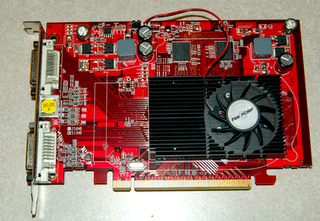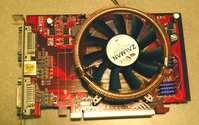Happy new year!
A year is a long time to plan in advance, so here are my resolutions for the first quarter of the new year:
1) Get more exercise.
2) Find a way to get my kids up to Vermont more frequently.
3) Finish the next version of the survey tool, and get it integrated with speech server.
4) Get the user management tool working on SQL Express.
-------------------------------------------------------------------------------
More bad international news today, reinforcing my view that the world is going to hell in a handbasket.
Yes, I'm getting older. Didn't Churchill once say: "
Show me a young Conservative and I'll show you someone with no heart. Show me an old Liberal and I'll show you someone with no brains." ?
In today's news,
ethnic conflict in Kenya related to the upcoming elections and in Sudan the
murder of an American State Department worker assigned to assist in relief efforts. I had begun to feel hope that a sort of Sudanese renaissance was under way, fueled by the triple threat of western support/relief for the Dafur conflict, Chinese demand for Sudanese oil, and the end of the Sudanese civil conflict. If Kenya falls though, then there goes the neighborhood. And then if there's evidence that the murder of the American aid worker was Al Queda related...?
-------------------------------------------------------------------------------
There's a magazine that arrives periodically in my mailbox called "Redmond - The independent voice of the Microsoft IT Community". The January issue had some
very interesting tidbits related to open source development. It seems that Google employs many leading open source programmers.
To be fair, the article also mentions that Yahoo employs open source programmers as well, as it's no secret that IBM and Novell have both liberally supported open source technologies.
Google and Yahoo both extensively use open source technologies such as SAMBA and MYSQL.
This clears up one of my biggest questions about open source, which is: How can programmers afford to work on this stuff? Answer--in many cases open source does not represent not altruism by programmer, it's altruism by corporation.
So, since by definition
corporations are pschopathic , why would Google, Yahoo, IBM, et. al, engage in altruistic behavior? If Google bases their search-engine infrastructure on hundreds of thousands of pcs running linux and mysql and matrixed together via samba, and is investing millions of dollars in tweaking these applications, then why share the tweaked software with potential competitors?
One answer: Microsoft. IBM does open source/linux because it's competing with Microsoft and there is a significant appeal for potential IBM customers in not being locked into a relationship with a specific vendor. Google a) doesn't want to pay for O/S licenses and SQL CALs for each of its hundreds of thousands of PCs, and b) likes being able to throw a significant land-mine (in the form of open source office) in the path of their most significant competitor. (Which, by the way, in
Live Search has what is probably the most potent alternative to Google's search engine).
In the long term, what does this mean? Well, ladies and gentlemen, I think it means that most open source as practiced today is an
anti-competitive technique akin to what would happen if Mobil opened a gas station across the street from Billy-Bob's fuel stop and service station and started giving away free gas. How long would that gas be free? Until Billy-Bob goes out of business, because Mobil is operating at a loss. So how long will these great open source projects be supported? Until Microsoft goes out of business. Fortunately, that doesn't appear to imminent threat and so we can all keep using great open source software for free for the foreseeable future.





